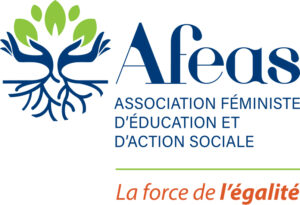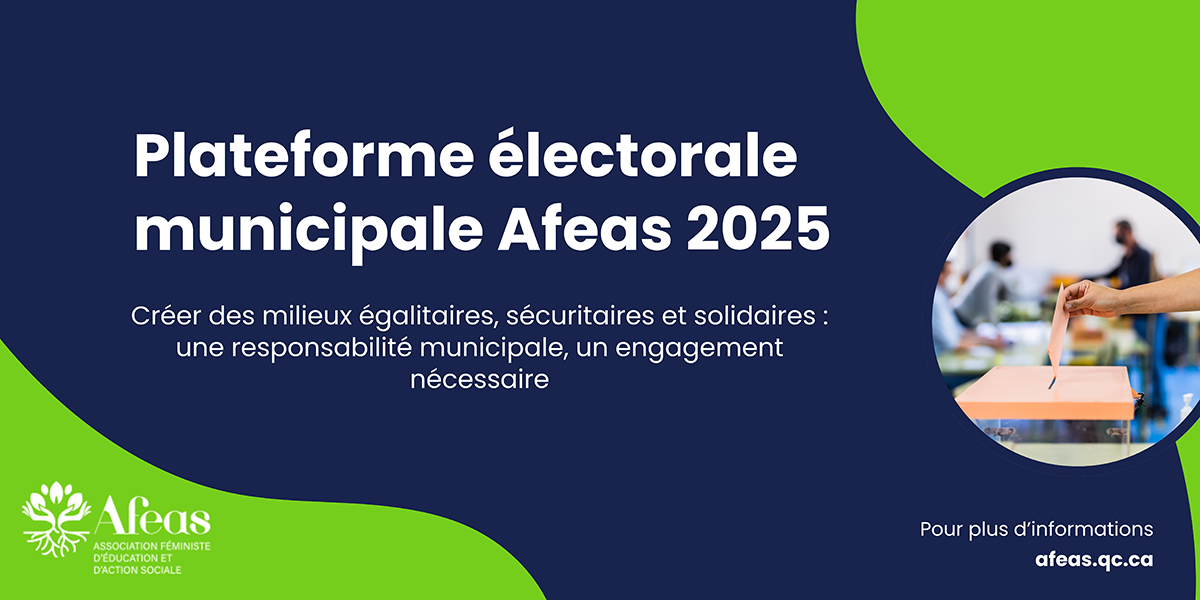PRESS RELEASE – Afeas renews call for a National Day of Recognition for Invisible Work
FOR IMMEDIATE RELEASE April 1st , 2025.
Afeas renews call for a National Day of Recognition for Invisible Work
Ottawa, ON – For almost 25 years, organizations have been calling on the federal government to formally recognize the first Tuesday in April as National Invisible Work Day (NIWD). Today, Association féministe d’éducation et d’action sociale (Afeas) and the National Coalition for the Equity of Invisible Work in Canada are once again urging a newly elected government to take action.
Invisible work—unpaid labour that includes caregiving, household management, and community support—underpins the economy, employment structures, and social norms. Yet, it remains largely overlooked. A 2022 study estimated that unpaid household work in Canada could be worth up to $860 billion annually if compensated at market rates, yet policies continue to downplay its economic significance.
“Invisible work is essential to our society, yet it often goes unnoticed. Now is the time to bring these contributions into the spotlight and drive real change,” said Lise Courteau, President of Afeas. “By uniting experts, policymakers, and advocates, we are advancing the fight for genuine gender equity in Canada.”
Recognizing and valuing unpaid work requires more than just awareness—it demands concrete policy changes. Canada must take concrete steps to recognize and value unpaid work. These measures include:
- Incorporating unpaid work into economic metrics: Calculating and integrating the value of unpaid work into the country’s Gross Domestic Product (GDP) every five years would make its economic impact visible and ensure it is factored into policy decisions.
- Creating supportive policies: Developing tax credits, pension programs, and replacement benefits for unpaid caregivers would provide economic security and reduce the risk of dependence on abusive partners.
- Adopting a gender-based approach: Applying an intersectional gender lens to policy-making can ensure the specific needs of women, including those from marginalized communities, are addressed in strategies to combat both violence and systemic inequities.
Beyond policy, a cultural shift is also needed. Caregiving and domestic work must be valued as essential contributions to society rather than dismissed as “women’s work.”
“Caregiving is an economic issue affecting families across Canada in tangible ways, not just women,” said Serah Gazali, Director of Program and Impact at the Women’s Economic Council and member of the National Coalition for the Equity of Invisible Work. “If we want a stronger, more resilient Canada, we must stop treating caregiving as an individual burden and start recognizing it as a strategic investment.”
As the movement gains momentum, Afeas and the National Coalition for the Equity of Invisible Work in Canada will continue to advocate for formal government recognition of NIWD. They urge all stakeholders—citizens, organizations, and policymakers—to join them in ensuring that invisible work is made visible, valued, and supported.
-30-
Media: For media inquiries or interview requests, please contact Mario Abou Zeid, Head of Public and Political Relations at infomedia@afeas.qc.ca or visit: www.afeas.qc.ca.
Afeas, founded in 1966, is dedicated to advancing women’s interests in Quebec and across Canada through policy engagement, training, and social action.

